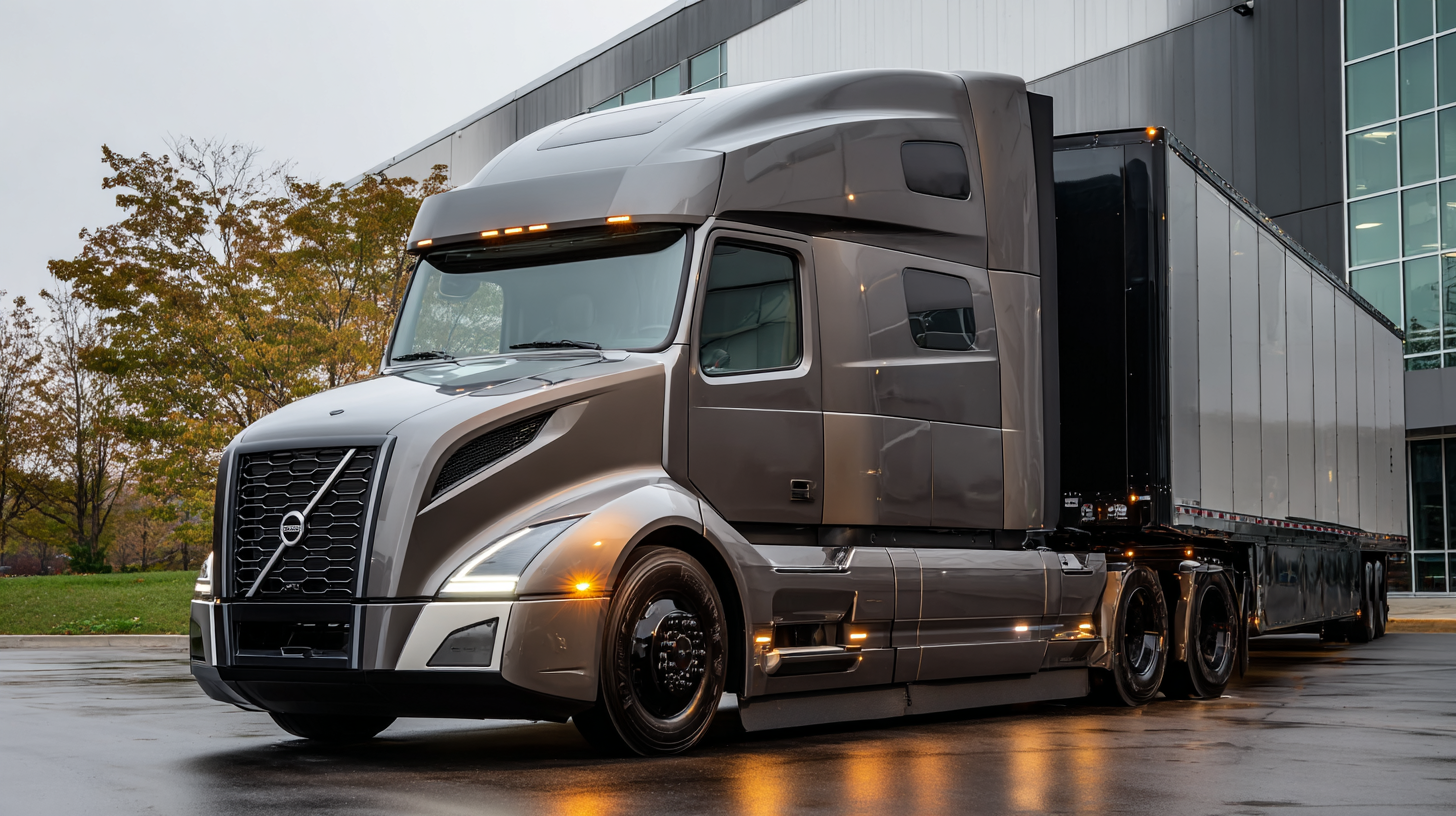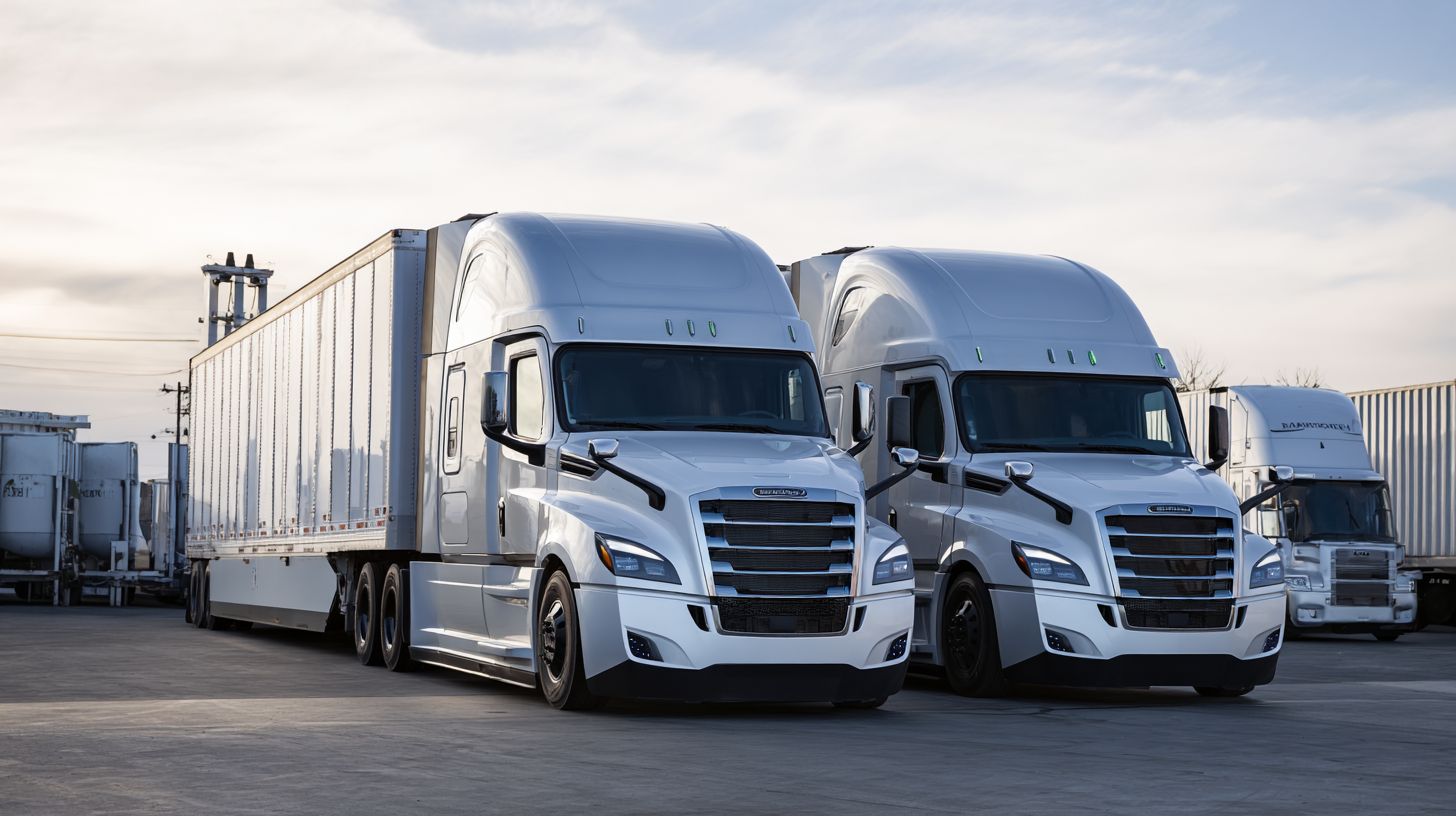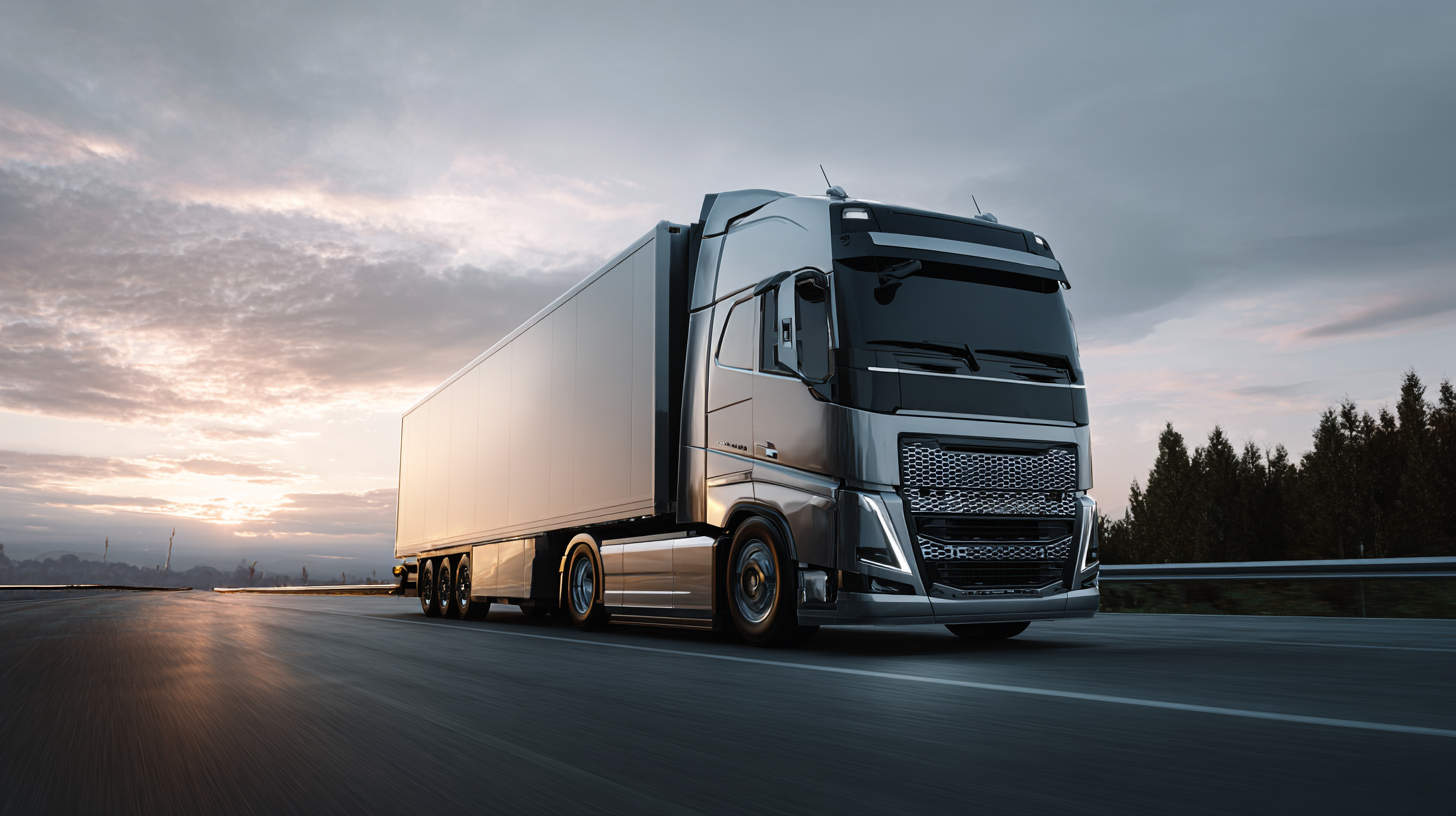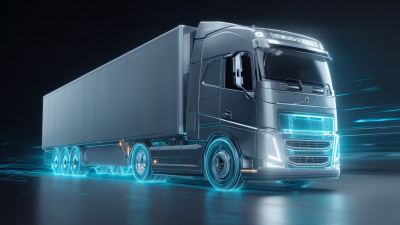Leave Your Message
The transportation industry is undergoing a significant transformation, largely driven by the rise of Electric Trucks, which are revolutionizing the delivery sector. According to a 2021 report by the International Council on Clean Transportation, electric trucks could reduce greenhouse gas emissions by up to 68% compared to their diesel counterparts. This shift not only contributes to environmental sustainability but also presents substantial cost savings for logistics companies, with a projected 50% reduction in fuel costs.

As e-commerce continues to surge, driven by a global shift toward online shopping — which saw U.S. e-commerce sales surpass $800 billion in 2020 — the demand for efficient and eco-friendly delivery solutions has never been greater. By adopting electric truck technology, companies are not only meeting consumer demands for faster deliveries but also playing a crucial role in creating a greener future for transportation.
Electric trucks are at the forefront of transforming the delivery industry, driven by several key technologies that are redefining transportation. One of the most significant advancements is battery technology. Modern electric trucks are equipped with high-capacity lithium-ion batteries that offer longer ranges and shorter charging times compared to earlier models. This improvement enables logistics companies to operate efficiently, reducing downtime and maximizing delivery capabilities. Moreover, innovations in battery recycling processes are ensuring sustainability and reducing environmental impact, which is crucial for the green transportation movement.
Another critical technology is regenerative braking, which allows electric trucks to recapture energy that would otherwise be lost during braking. This system not only improves overall energy efficiency but also extends the lifespan of the vehicle's components. Additionally, advancements in telematics and fleet management systems are providing real-time data and analytics, allowing companies to optimize routes and monitor vehicle performance. These technologies are not only enhancing operational efficiency but also contributing to reduced carbon emissions, positioning electric trucks as a viable solution for the future of sustainable logistics.
Electric trucks are making a significant impact on the delivery industry, primarily due to their environmental benefits. These vehicles produce zero tailpipe emissions, which drastically reduces air pollution compared to their diesel counterparts. As cities increasingly challenge traditional diesel trucks with stringent regulations, electric trucks emerge as a viable solution, assisting logistics companies in meeting sustainability goals and improving public health by reducing harmful pollutants.
Tip: Consider incorporating electric trucks into your fleet to enhance your company's green image and comply with upcoming environmental regulations. Not only can this decision meet regulatory requirements, but it can also attract environmentally conscious consumers who prefer businesses that prioritize sustainability.
Additionally, electric trucks often come with lower operational costs in the long run. While the initial investment may be higher, the reduced fuel costs, tax incentives, and lower maintenance expenses make them a financially wise choice for delivery logistics. Companies can reinvest the savings into other aspects of their operations, further facilitating growth and sustainability.
Tip: If you’re considering transitioning to electric trucks, evaluate your routes and delivery schedules to maximize their efficiency. Understanding your operational needs will help you choose the right electric vehicle model and charging infrastructure, ensuring a seamless integration into your logistics framework.
The delivery industry is undergoing a significant transformation with the rise of electric trucks and advanced route optimization technologies. As last-mile delivery accounts for a major portion of logistics costs—reportedly around 28%—the need for efficiency is more pressing than ever. Innovations in electric trucking not only promise reduced emissions but also enhance economic viability. Implementing AI-driven route optimization can lead to savings of $300-$400 million, as evidenced by various case studies in the industry, emphasizing the benefits of integrated technologies in managing logistics.
The challenges of last-mile logistics, such as traffic inefficiencies and carbon footprints stemming from fossil fuel reliance, are being addressed through innovative solutions. A recent approach involves utilizing deep learning algorithms to optimize charging behaviors for electric vehicle fleets, thereby improving operational efficiency and sustainability. Furthermore, platforms that harness AI for real-time shipment tracking and route optimization are reshaping urban delivery networks. Reports suggest that these advancements can cut delivery times significantly while minimizing fuel consumption, presenting a clearer path toward greener logistics practices.

 Electric trucks are making significant strides in the delivery industry, primarily due to their cost savings and enhanced efficiency. One of the most compelling benefits is the reduction in fuel expenses. Traditional diesel trucks incur high costs related to fuel volatility, whereas electric vehicles (EVs) benefit from lower energy costs and government incentives, which can substantially decrease overall operational expenses. Companies are beginning to recognize that the initial investment in electric trucks leads to long-term savings, making them more financially viable.
Electric trucks are making significant strides in the delivery industry, primarily due to their cost savings and enhanced efficiency. One of the most compelling benefits is the reduction in fuel expenses. Traditional diesel trucks incur high costs related to fuel volatility, whereas electric vehicles (EVs) benefit from lower energy costs and government incentives, which can substantially decrease overall operational expenses. Companies are beginning to recognize that the initial investment in electric trucks leads to long-term savings, making them more financially viable.
When considering the integration of electric trucks, it’s essential to assess the charging infrastructure. Investing in a robust charging network can facilitate smoother operations and minimize downtime. Additionally, companies should explore bulk purchasing options for electric trucks to leverage economies of scale. A well-planned transition that includes driver training on EV operation can also enhance efficiency.
Another aspect to consider is maintenance savings. Electric trucks typically require less maintenance than their diesel counterparts due to fewer moving parts and no need for oil changes. This reliability translates into fewer unexpected breakdowns and lower repair costs. As companies embrace electric trucks, they not only improve their bottom line but also contribute to a more sustainable future in transportation.
The transition to electric fleet operations presents several challenges that companies must navigate to fully embrace electric trucks in the delivery industry. One significant obstacle is the initial investment required for new electric vehicles (EVs) and the necessary charging infrastructure. Many companies may hesitate to make the financial leap, especially when existing diesel fleets still have functional life. Additionally, the variability in charging stations, including accessibility and speed of charging, can complicate logistics planning.
To address these challenges, organizations can explore innovative financing options and partnerships to reduce the financial burden of transitioning to electric fleets. Collaborations with energy providers can lead to better charging solutions and infrastructure development, ensuring that vehicles are charged efficiently during off-peak hours. Furthermore, implementing robust route optimization software can help maximize the range of electric trucks, allowing companies to integrate EVs into their operations gradually while minimizing disruptions and maximizing productivity. Emphasizing training for drivers and logistics personnel on the unique aspects of operating electric vehicles will also be critical in ensuring a smooth transition.






